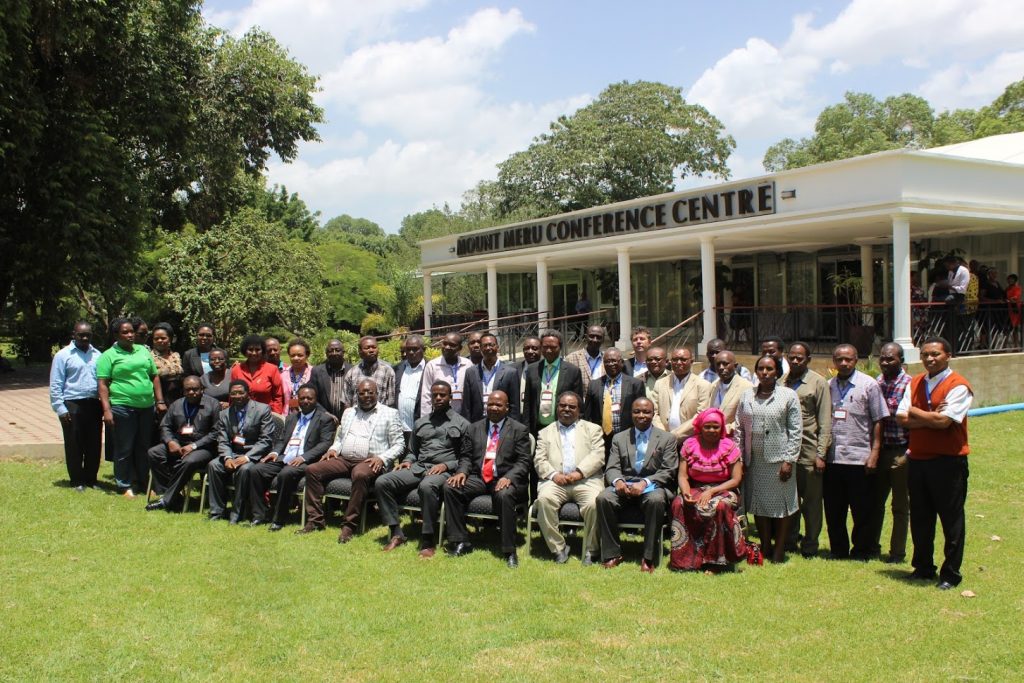Our latest impressions and news
Author: rllopez
SYNTHESIS REPORT: Malawi Report
Written by rllopez on . Posted in New Resources, Uncategorized.
ANNOUNCEMENT: ASARECA and CIMMYT/SIMLESA are co-organizing a policy forum on conservation agriculture-based sustainable intensification (May 3-4, 2019, Kampala Uganda)
Written by rllopez on . Posted in Event, New Resources, Stories.
The Association for Strengthening Agricultural Research in Eastern and Central Africa (ASARECA), in collaboration with CIMMYT (and their partners) are organizing a policy forum on conservation agriculture-based sustainable intensification (CASI) as part of the Summit of Patron Ministers from ASARECA member countries (plus Malawi and Mozambique).
The High-Level Policy Forum will focus on how CASI can drive critical shifts in farming practices and how innovations in agri-businesses and rural institutions can promote agricultural resilience and sustainability in Africa.
The SIMLESA project is funded by the Australian Center for International Agricultural Research (ACIAR) and coordinated by CIMMYT in partnership with national research institutions and other international collaborators. Find out more about this forum here.
MEDIA REPORT: Conservation Agriculture-based Sustainable Intensification (CASI) in agriculture extension will increase Agriculture Productivity – NARO
Written by rllopez on . Posted in New Resources, Reports.
Read about the conclusions at the Uganda SIMLESA policy forum during which potential policy actions for mainstreaming conservation agriculture practices were deliberated. The included strengthening extension delivery systems and development of multi-functional agricultural machinery and in skills development in the areas of fabrication, repair and maintenance of agricultural machinery here
Tanzania SIMLESA Policy Forum, 18 March 2019
Tanzania forum urges widespread adoption of conservation agriculture to beat climate change
Written by rllopez on . Posted in Event.
Joshua Masinde
In Brief:
- CASI practices have potential to increase yields by as much as 4.5 tons per hectare for maize and 1.4 tons hectare for maize and legumes.
- The technology has proven to cut down labor time by half, increased yields twofold and improved soil condition for proper crop nourishment
- Participants called for enhanced collaboration among all stakeholders to accelerate the scale up and entrenchment of CASI technologies in Tanzania

Despite maize and legumes being key staples in Tanzania, yields have remained low, at 1.2 tons per hectare for maize and 0.38 tons per hectare for legumes such as beans. Maize and legume farmers face numerous challenges, including weather variability, declining soil health, pest and disease infestation and worsening drought conditions.
However, having the right knowledge on, and supporting widespread adoption of innovations such as conservation agriculture-based sustainable intensification (CASI) practices, could ramp-up smallholder farmers’ resilience, food and livelihood security. Traditionally, many smallholders have focused on mono-cropping, labor-intensive tillage, biomass burning, and deforestation to reclaim land for farming. These have depleted soil nutrients, affected crop yields, occasioned environmental degradation and socio-economic uncertainty.
Since 2010, through the Sustainable Intensification of Maize and Legume Cropping Systems for Food Security in Eastern and Southern Africa (SIMLESA) project, farmers have been encouraged and supported to adopt CASI practices. This integrated approach entails, among other things, crop diversification with rotational, mixed or inter-cropping system, minimum tillage, livestock rearing, mechanization, to improve soil fertility, farmers’ productivity and yields. In Tanzania, SIMLESA’s aim is to sustainably increase productivity and income of the Maize-Legume Cropping Systems, with funding from the Australian Center for International Agricultural Research (ACIAR). It is implemented by the International Maize and Wheat Improvement Center (CIMMYT) in collaboration with the Tanzania Agricultural Research Institute (TARI).
During the Tanzania National Policy Engagement Forum on CASI technologies held in Arusha on March 13, 2019, participants called for enhanced collaboration among all stakeholders to accelerate the scale up and entrenchment of CASI technologies in Tanzania. Since the project inception in the country in 2010, over 50,000 smallholder farmers have adopted CASI practices, which have potential to increase yields by as much as 4.5 tons per hectare for maize and 1.4 tons hectare for maize and legumes.
Doubling yields with half labor
“The message we are now telling farmers is that when they take good care of their land through practices such as minimal soil tillage and retention of crop residue on the farm, the soil will retain moisture and nutrients for longer. This is essential for plant growth even in times of scarce rainfall. Other essential practices such as inter-cropping legumes such as beans with maize fixes nitrogen in the soil, while providing the smallholders with nutritious food, for consumption and sale for increased incomes,” said John Sariah, SIMLESA Tanzania Coordinator.
Deputy Minister of Agriculture in Tanzania, Innocent Bashungwa, who was the chief guest, lauded the productive collaborative efforts that went into developing and piloting CASI technologies in the country since 2010. “With the joint implementation of CASI initiatives by international research institutions, development partners, NGOs, the private sector, researchers from TARI, extension services and farmers, there is clear evidence of increased farm productivity, time savings through mechanization, improved soil health and resilience of farmers to challenges of climate change and variability. In fact, the technology has proven to cut down labor time by half, increased yields twofold and improved soil condition for proper crop nourishment,” he said. “We will ensure that the conclusions presented during the SIMLESA forum are included in the agricultural policy documents currently being prepared” he added.
He added that with the Tanzanian government focused on spurring industrialization, there is need for stakeholders to support investments in local production of appropriate machinery, implements, improved seeds, fertilizer, herbicides and pesticides. “This is critical for sustainable intensification of smallholders’ maize-legume farming system that farmers have easy access to local, affordable technologies.”
TARI Director General, Geoffrey Mkamilo, noted that CASI technologies are yet to reach a critical mass of farmers as desired. “TARI, through the Technology Transfer directorate, has started involving all key stakeholders, specifically policy makers at local and national levels, to expedite the dissemination of these technologies to more beneficiaries efficiently and at faster rate,” he said.
The TARI board chair and the chair of parliamentary committee on agriculture both emphasized the importance of effective communication of research findings to the farming community, in ways that encourages adoption of best practices.
The forum agreed to pursue countrywide outreach efforts, to showcase the best practices of CASI, including demonstrations of two-wheel tractors. It also urged private sector players to increase investments along the CASI value chain to make technologies such as small machinery widely accessible to farmers. They also called for increased training for researchers, trainers and local extension services in CASI technologies.





